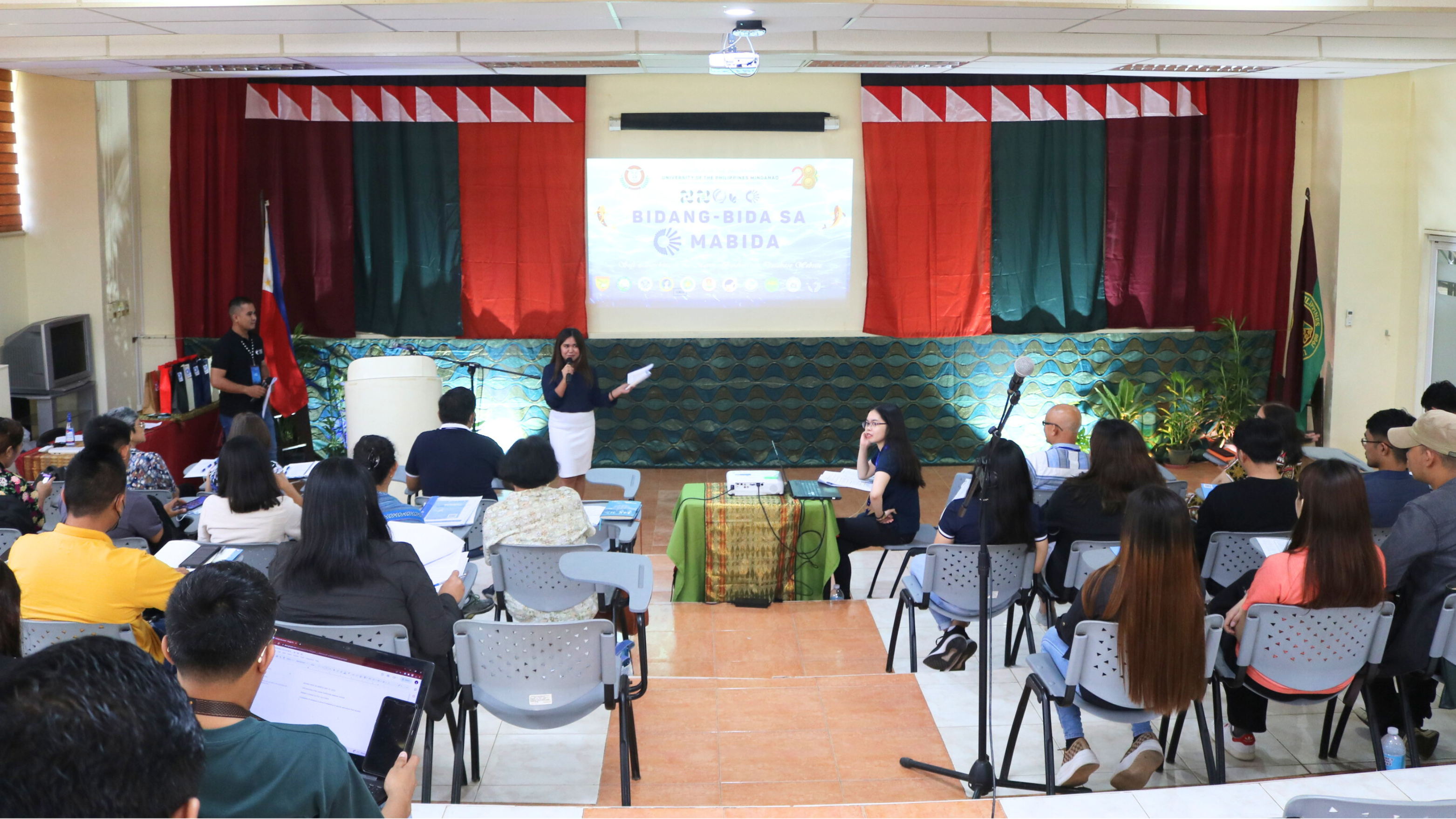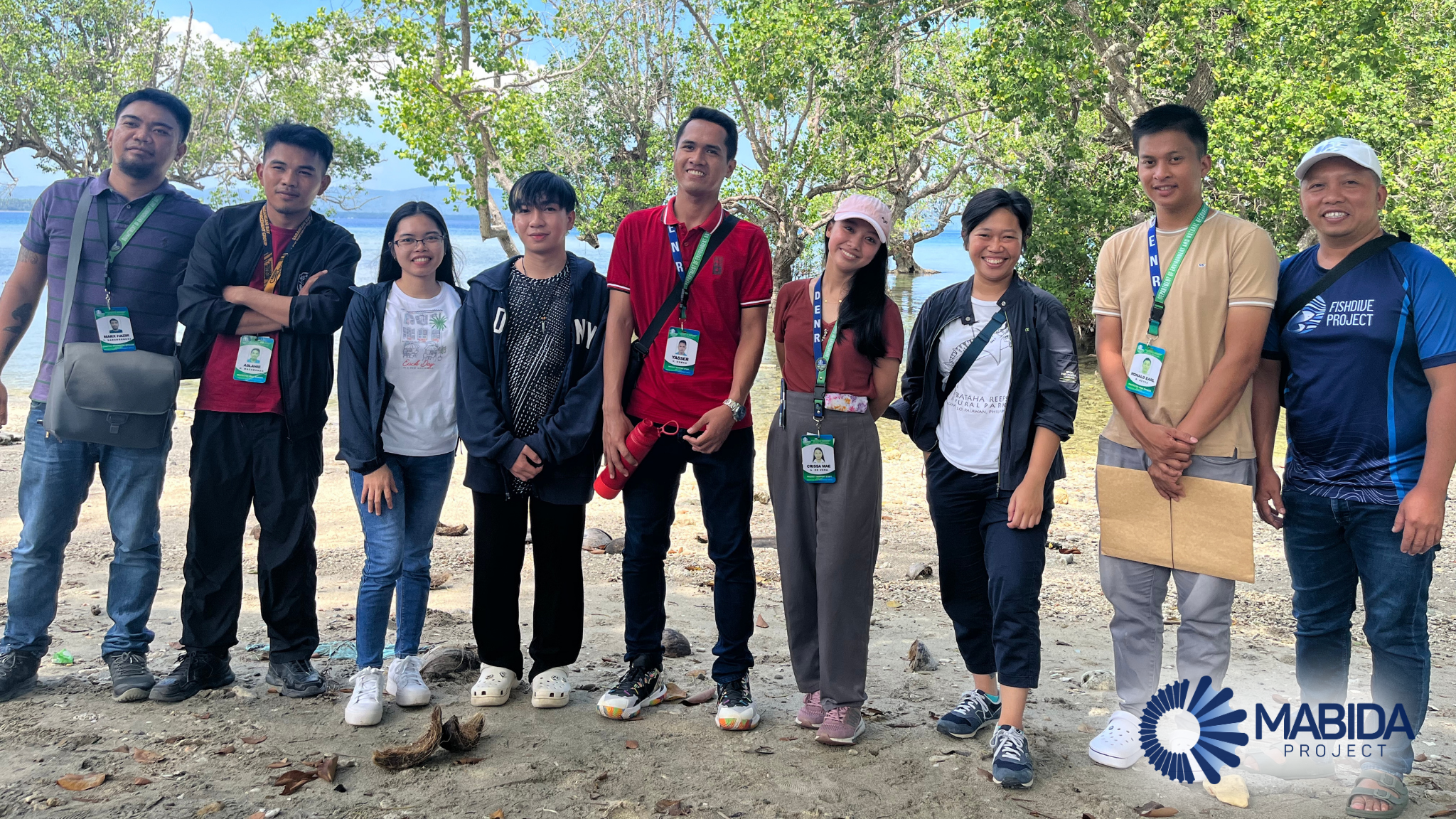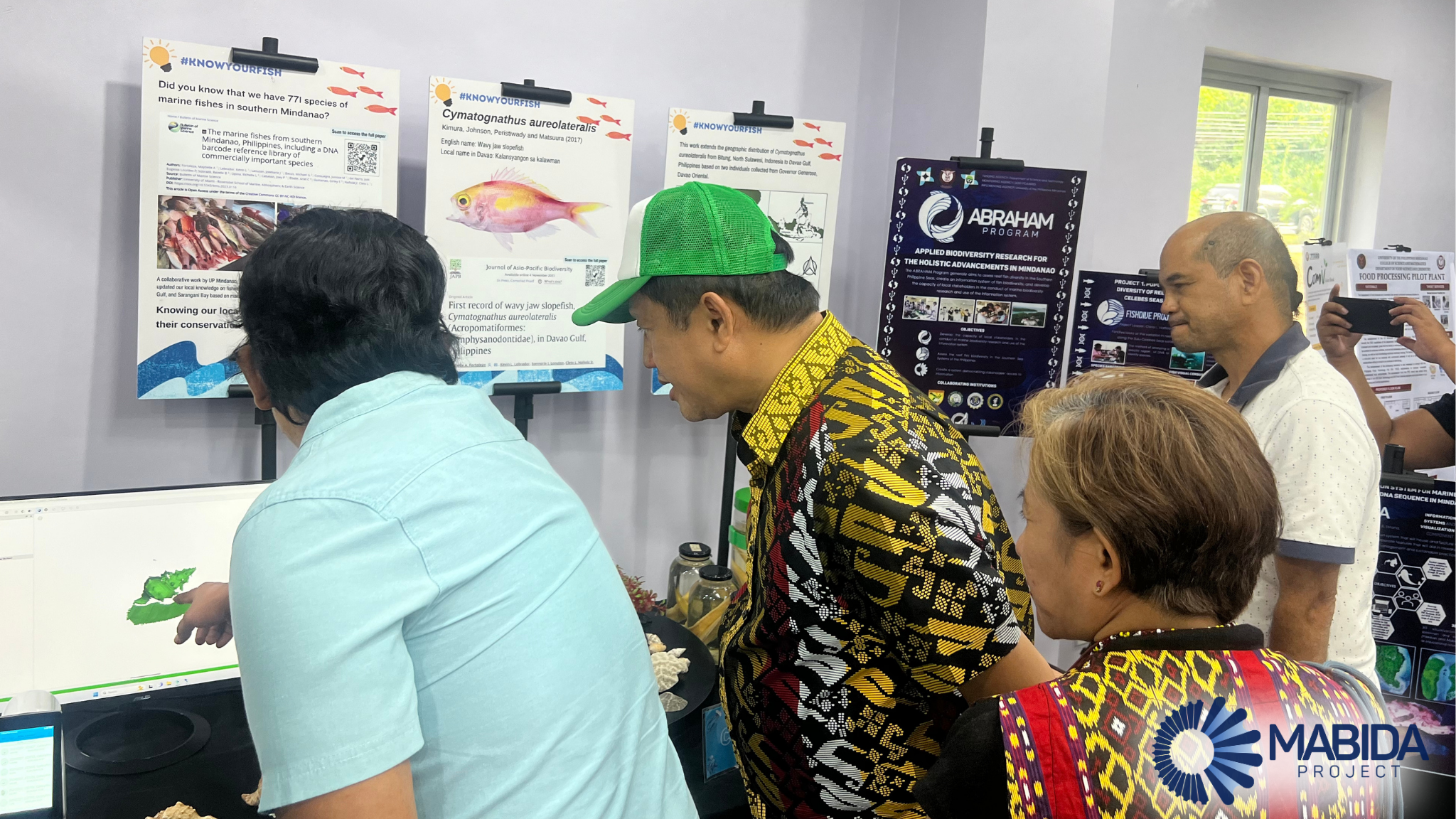
Photo taken by UP Mindanao Public Relations Office
Marine Biodiversity Database (MABIDA) Website Soft Launched to Increase Marine Conservation Efforts
Written by Reisha Claffel Z. Ferraren
Uploaded on May 22, 2023
Davao City, Philippines - Bidang-Bida sa MABIDA, the soft launch ceremony of the Marine Biodiversity Database (MABIDA) Website, was conducted at the UP Mindanao Administration Building Lorenzo Hall on May 22, 2023. The event, organized by the Applied Biodiversity Research for Holistic Advancements in Mindanao (ABRAHAM) MABIDA Project in collaboration with the UP Mindanao Office of Research, coincided with the “Internal Day for Biological Diversity” and gathered distinguished in-person visitors and virtual attendees from various institutions and organizations.
The MABIDA Website, accessible through the URL 'https://mabida.upmin.edu.ph', marks an important step forward in the protection and knowledge of marine biodiversity in Mindanao. The website features a large amount of data, including species profiles, habitat information, and environmental characteristics, which will be updated and enhanced on a regular basis by ABRAHAM Program FishDive Project members and collaborating partner institutions. The website envisions to provide a comprehensive and user-friendly resource for scientists, researchers, and policymakers to obtain essential data about marine ecosystems.
The soft launch event witnessed a diverse array of participants, both physically present and joining virtually. Notable in-person attendees included Dr. Mari-Ann M. Acedera, the Director of DOST Philippine Council for Agriculture, Aquatic and Natural Resources Research and Development (DOST PCAARRD) Marine Resources Research Division, and Mrs. Ma. Adela Corpuz, the Senior Science Research Specialist of DOST PCAARRD Marine Resources Research Division. Notable guests who joined virtually included Mr. Jaypee G. Trinidad of DOST-PCAARRD and faculty members from the Southern Philippines Agri-business and Marine and Aquatic School of Technology.
The event also welcomed faculty members and researchers from partner Higher Education Institutions (HEIs), namely Davao del Norte State College, Davao Oriental State University, and Mindanao State University General Santos City. Representatives from UP Mindanao, including officials, staff, and students, were also present, thus underscoring the university's commitment to marine conservation and research. The extensive involvement and partnership of these institutions and DOST PCAARRD shall provide a solid foundation for future marine studies and initiatives.
ABRAHAM FishDive Project Leader Dr. Cleto L. Nañola, Jr. introduced the audience to the ABRAHAM Program, the mother project of the FishDive Project and the MABIDA Project. Thereafter, ABRAHAM MABIDA Project Leader Leo Manuel B. Estaña, MSc gave a more thorough introduction of the MABIDA Project to help condition the audience as MABIDA Project Technical Specialists Geomarie Anne S. Paredes and Norjan Charls M. Cabanalan subsequently led a live demonstration to showcase the key features and functionalities of the MABIDA Website. Features showcased were the (1) Matching and Alignment, (2) Search Database, and (3) the MABIDA Website Interactive Map.
The Matching and Alignment feature is intended to help with the taxonomic identification of samples supplied by website users. Meanwhile, the Search Database feature allows users to manually search and traverse the MABIDA Website's data repository of marine fisheries datasets supplied by partner HEIs and other collaborating agencies. Users can also use the MABIDA Website Interactive Map to see the numerous locations where the marine fishery datasets were collected. Future additions to this interactive map will include spatial overlay of various thematic maps relevant to marine science.
Dr. Nañola urged the collaborating partner HEIs and agencies to polish and prepare the datasets that they will share and upload to the MABIDA Website, as these records will be used to improve the scientific community's ability to manage and protect the Mindanaon marine environment. In addition, Dr. Acedera of DOST PCAARRD stated that the MABIDA website will promote a more collaborative space for scientific cooperation in marine resource research and development, paving the way for more effective efforts to protect and understand the Philippine marine environment and resources. As the website becomes fully operational in the coming months, it is expected to attract a wider audience, including scientists, students, and marine enthusiasts alike.



